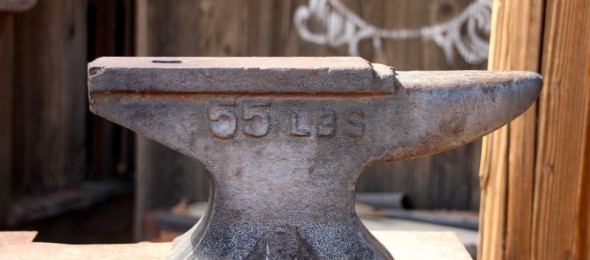A United States Court of Appeals for the Fifth Circuit panel has issued an interesting ruling in a case involving arbitration. In Stemcor USA, Inc. v. Cia Siderurgica Do Para Cosipar; Daewoo Int’l Corp. v. Thyssenkrupp Mannex Gmbh v. America Metals Trading, LLP, No. 16-30984 (5th Cir., Sept. 1, 2017), two foreign corporate creditors, Daewoo and Thyssenkrupp Mannex GMBH (“TKM”), sought to attach pig iron that was owned by America Metals Trading, LLP (“AMT”). The case began when Daewoo filed a lawsuit against AMT seeking both attachment and an order compelling arbitration in the Eastern District of Louisiana. According to Daewoo, the company’s request for attachment was merited under both maritime law and Louisiana’s non-resident attachment statute. The district court initially agreed and issued an attachment order in favor of Daewoo.
Next, TKM secured an attachment related to the same pig iron in a Louisiana state court. After that, TKM intervened in Daewoo’s case and claimed Daewoo’s attachment “should be vacated because (1) maritime jurisdiction was improper and (2) Louisiana non-resident attachment was inapplicable.” In response, the Eastern District of Louisiana sided with TKM and vacated Daewoo’s attachment. In its decision, the district court said Daewoo was not eligible to receive a writ of attachment using the state’s non-resident attachment statute because the company did not file an “action for a money judgment” when it sought to compel its dispute with AMT to arbitration.
On appeal, the Fifth Circuit first found there was “federal subject matter jurisdiction under the Convention on the Recognition and Enforcement of Foreign Arbitral Awards (the “Convention”).” The court stated:
Applying E.A.S.T. and the cases that follow it, the Convention grants jurisdiction over Daewoo’s request for an attachment. Like the plaintiff in E.A.S.T., Daewoo sought to attach the pig iron in order to facilitate arbitration and increase its chance of recovering on any award. Because Daewoo sought attachment to bring about a covered arbitration—that is, because Daewoo’s suit related to a covered arbitration agreement—this court has subject matter jurisdiction.
After that, the appellate court turned to the question of “whether Louisiana’s non-resident attachment statute allows for attachment in aid of arbitration.” The court stated although “a suit to compel arbitration (like this suit) is not directly an action for a money judgment,” that question “does not end the inquiry.” The Fifth Circuit then examined the language of Article 3502 of the Louisiana Code of Civil Procedure. According to the court:
Article 3502 allows for the possibility of attachments in suits like this one. In Louisiana, arbitral awards are convertible into money judgments in confirmation proceedings. See, e.g., Matherne v. TWH Holdings, L.L.C., 136 So. 3d 854, 860 (La. App. 1st Cir. 2013) (“A confirmed arbitration award is considered to be a valid and final judgment for purposes of res judicata.”); La. Stat. § 9:4212 (“Upon the granting of an order confirming, modifying, or correcting an award, judgment may be entered in conformity therewith in the court wherein the order was granted.”); La. Stat. § 9:4214 (noting that when an award is converted to a judgment, “[t]he judgment so entered shall have the same force and effect, in all respects, as, and be subject to all the provisions of law relating to, a judgment in an action, and it may be enforced as if it had been rendered in an action in the court in which it is entered”). Thus, as TKM’s counsel conceded, an action to confirm a money award is an action for a money judgment. And because a confirmation suit can be an action for a money judgment, Section 3502 allows for attachments to be issued before the contemplated underlying confirmation suit is brought.
Put into context, Section 3502 allows for attachments to issue in aid of arbitration so long as the party seeking the attachment (1) complies with the requirements of Section 3502 and (2) shows good cause for a pre-petition attachment, which will usually require showing that arbitration is likely to result in a confirmation suit and also showing a need for an immediate attachment (which may include an inquiry into the imminence of the arbitration or confirmation suit).
Thus, the critical question is not whether Daewoo’s suit to compel arbitration is an action for a money judgment (it is not); instead, we must further ask (1) whether Daewoo followed the requirements of Section 3502 to seek an attachment in aid of its yet to be filed confirmation suit and (2) whether Daewoo’s confirmation suit would be an action for a money judgment. First, TKM’s counsel conceded at oral argument that Daewoo followed the procedural requirements of Section 3502. And TKM does not argue that Daewoo failed to follow any Section 3502 conditions imposed by the district court (for example, by filing its follow-on confirmation proceeding too late). Second, from the outset, Daewoo was clear that it would be pursuing a money award in arbitration and that it needed a pre-confirmation suit attachment to secure any eventual arbitral award because AMT was hemorrhaging assets. That is, Daewoo consistently maintained that it needed an attachment so that it could return to Louisiana and collect on its successful arbitration award.
Because Article 3502 of the Louisiana Code of Civil Procedure allowed Daewoo to seek an attachment prior to filing a suit to confirm an arbitration award, the nation’s Fifth Circuit Court of Appeals reversed the district court’s order dissolving the company’s attachment and remanded the case. In addition, Judge Graves wrote a brief concurrence stating he believed “the underlying action seeking to compel arbitration here is clearly an ‘action for a money judgment’ under Louisiana’s non-resident attachment statute.”
Photo credit: Foter.com













